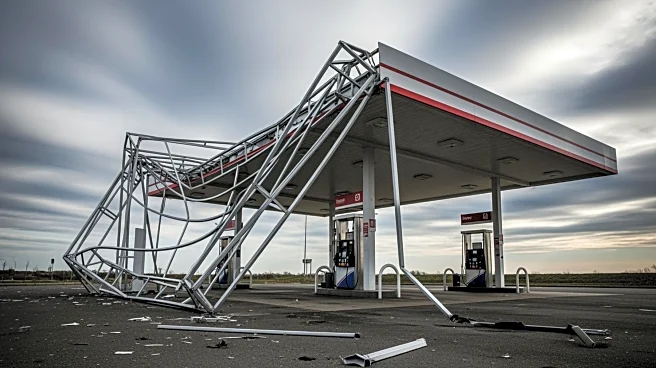What's Happening?
Jerry Jones, owner of the Dallas Cowboys, recently shared insights into the team's potential for resurgence after a prolonged absence from the Super Bowl. Jones, who purchased the Cowboys in 1989 for $150 million, faced skepticism due to the team's financial struggles at the time. Despite initial challenges, Jones transformed the Cowboys into a lucrative franchise, now valued at over $12 billion. In a conversation with CNBC's Michael Ozanian, Jones reflected on his strategic decisions, including controversial sponsorship deals with Nike and Pepsi, which defied NFL norms. He expressed optimism about the Cowboys' future, likening the team to a room filled with lighter fluid, ready for ignition.
Why It's Important?
The Dallas Cowboys' potential resurgence is significant for both the NFL and its fans. As one of the most valuable sports franchises, the Cowboys' success could influence league dynamics, sponsorships, and fan engagement. Jones' embrace of private equity in the NFL could lead to increased investment and innovation within the league. The Cowboys' return to prominence would not only boost their brand but also impact the broader sports industry, potentially setting new standards for team management and marketing strategies. Stakeholders, including sponsors and fans, stand to benefit from renewed interest and financial growth.
What's Next?
The Cowboys' journey towards a Super Bowl appearance will be closely watched by fans and analysts. Jones' strategic moves, including potential changes in team management and player acquisitions, could play a crucial role in the team's performance. The NFL's evolving landscape, with increased private equity involvement, may offer new opportunities for the Cowboys to leverage financial resources for competitive advantage. As the team prepares for upcoming seasons, their progress will be a focal point for discussions on sports management and franchise value.
Beyond the Headlines
Jones' approach to building the Cowboys' empire highlights broader themes in sports management, such as the balance between tradition and innovation. His willingness to challenge NFL norms reflects a shift towards more aggressive business strategies in sports. The Cowboys' story underscores the importance of visionary leadership in transforming struggling franchises into industry leaders. This narrative may inspire other team owners to adopt similar strategies, potentially reshaping the sports business landscape.









